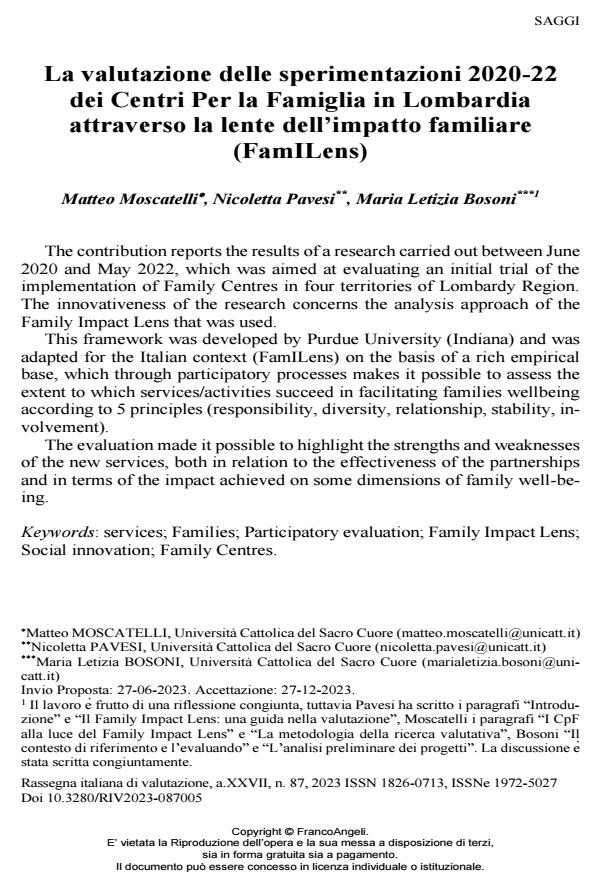La valutazione delle sperimentazioni 2020-22 dei Centri Per la Famiglia in Lombardia attraverso la lente dell’impatto familiare (FamILens)
Journal title RIV Rassegna Italiana di Valutazione
Author/s Matteo Moscatelli, Nicoletta Pavesi, Maria Letizia Bosoni
Publishing Year 2024 Issue 2023/87
Language Italian Pages 23 P. 69-91 File size 367 KB
DOI 10.3280/RIV2023-087005
DOI is like a bar code for intellectual property: to have more infomation
click here
Below, you can see the article first page
If you want to buy this article in PDF format, you can do it, following the instructions to buy download credits

FrancoAngeli is member of Publishers International Linking Association, Inc (PILA), a not-for-profit association which run the CrossRef service enabling links to and from online scholarly content.
The contribution reports the results of a research carried out between June 2020 and May 2022, which was aimed at evaluating an initial trial of the implementation of Family Centres in four territories of Lombardy Region. The innovativeness of the research concerns the analysis approach of the Family Impact Lens that was used. This framework was developed by Purdue University (Indiana) and was adapted for the Italian context (FamILens) on the basis of a rich empirical base, which through participatory processes makes it possible to assess the extent to which services/activities succeed in facilitating families wellbeing according to 5 principles (responsibility, diversity, relationship, stability, in- volvement). The evaluation made it possible to highlight the strengths and weaknesses of the new services, both in relation to the effectiveness of the partnerships and in terms of the impact achieved on some dimensions of family well-be- ing.
Keywords: services; Families; Participatory evaluation; Family Impact Lens; Social innovation; Family Centres.
Matteo Moscatelli, Nicoletta Pavesi, Maria Letizia Bosoni, La valutazione delle sperimentazioni 2020-22 dei Centri Per la Famiglia in Lombardia attraverso la lente dell’impatto familiare (FamILens) in "RIV Rassegna Italiana di Valutazione" 87/2023, pp 69-91, DOI: 10.3280/RIV2023-087005